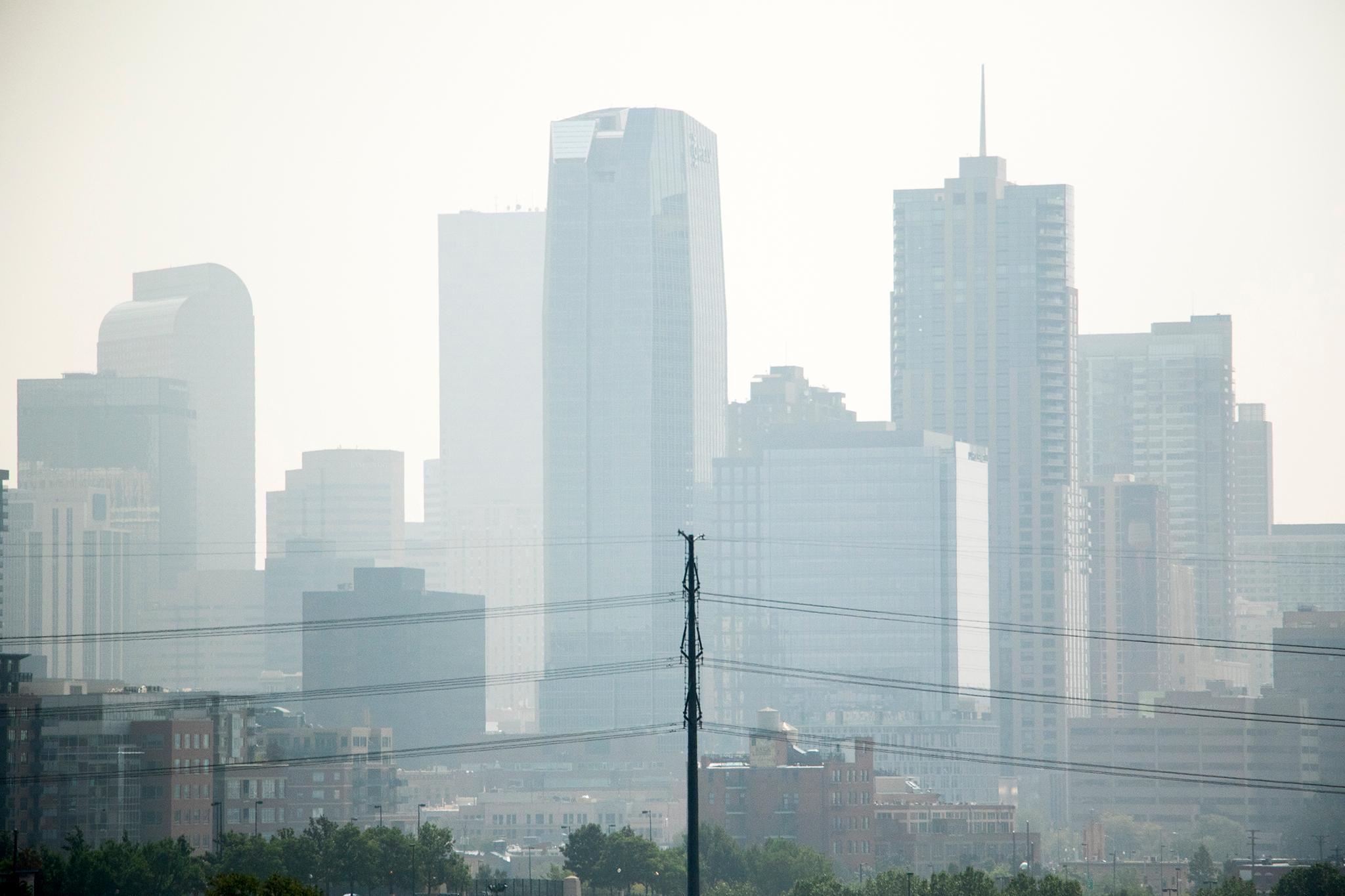
After a smoggy summer along the Northern Front Range, Gov. Jared Polis is asking lawmakers for money to fund free bus and train rides during next year’s ozone season.
The $28 million proposal is part of the governor’s $40 billion budget request for the 2022-2023 fiscal year, which he announced at the start of November. The legislature will hash out a final version after lawmakers return to the capitol next year, but Polis said the plan would be one of his office’s priorities.
“At a time when area transit agencies are still working to bring riders back following the COVID-19 pandemic, this program will serve to save riders money, help rebuild ridership, and reduce driving,” the governor’s budget request says.
The transit plan is one piece of a broader $424 million in one-time investments for air quality projects outlined in Polis’ budget request. It also calls for $150 million for electric school buses, $50 million to clean up the industrial and aviation sectors and $52 million to help staff the state air quality division, among other programs.
The announcement comes after residents in the Front Range experienced the worst ozone season in decades. The state issued 65 action day alerts for the northern Front Range from May 31 to August 31, advising residents to avoid driving or using gas-powered lawn equipment.
The warnings were not enough to avoid unhealthy levels of the pollutant. Final results from the Colorado Air Quality Control Division confirm 12 Front Range air monitoring sites recorded a three-year average above the federal health standard of 70 parts per billion of ozone. Average levels exceed 75 parts per billion, an earlier federal standard, more times than at any point since 1995.
The results mean the U.S. Environmental Protection Agency will likely upgrade the region from a “serious” to a “severe” violator of federal air quality standards in early 2022 — a move that would require the state to clamp down on sources of ozone ingredients, including oil and gas operations, factories and vehicles.
Over the last year, the question of the best way to cut transportation emissions has pitted the governor against environmental groups. Air regulators pulled back a plan to require large employers to discourage car travel after business groups aligned against the policy.
Rebecca Curry, an attorney with EarthJustice, said free transit rides would be a step in the right direction since it goes beyond asking people to avoid driving. In addition, it would make the decision less of a burden.
“For many, one alternative is the transit system, but there are barriers. It can be expensive,” Curry said.
The Regional Transportation District is the largest transit agency in the ozone nonattainment area, which includes the Denver metro and smaller urban areas to the north like Fort Collins and Greeley.
RTD General Manager and CEO Debra Johnson endorsed the idea of free fare, or “spare the air” days, during a public meeting last month. “We are willing and able to go forward with that,” Johnson said at the final meeting of the Polis-convened RTD accountability committee.
Johnson told the committee that other transit agencies across the country where she’s worked — including Metro in Los Angeles — have similar programs. “There are models that we can basically emulate from different parts of the county that have been doing this for decades,” Johnson said.
In a new statement, Johnson said RTD has begun working on plans for a free fare program during the ozone season.
Separately from the Polis proposal, state Sen. Faith Winter said Monday that she’s pushing for more state money for free public transit to help improve air quality and reduce greenhouse gas emissions across the entire state.
“There are 63 public transit agencies [in Colorado],” said Winter, D-Westminster. “Many of them already offer free and reduced fares. And so we are looking at best practices and how we can make sure this is a statewide solution."
Winter said she doesn’t yet know what that might cost but suggested one funding source could be the third federal coronavirus relief bill and the multi-billion dollar transportation funding bill the legislature passed earlier this year.
That bill left RTD out of any new direct funding stream, but the agency is eligible to receive dollars that could buy new cleaner vehicles and increase transit service.
“I very sincerely want RTD to use that money for operational expenses,” Winter said. “And I'm having those conversations to get them to a place where they are comfortable doing so."
RTD leaders have said it can’t currently expand service because of a driver and mechanic shortage. Johnson told the accountability committee in October that she is working to raise wages for front-line employees. RTD’s contract with its largest union expires in March 2022.
“It’s going to take a large investment as we go forward,” she said. “Because our hourly wages are substantially low.”
Editor's note: This article and its headline have been updated to reflect when the budget proposal was announced and to include the relevant budget years.








